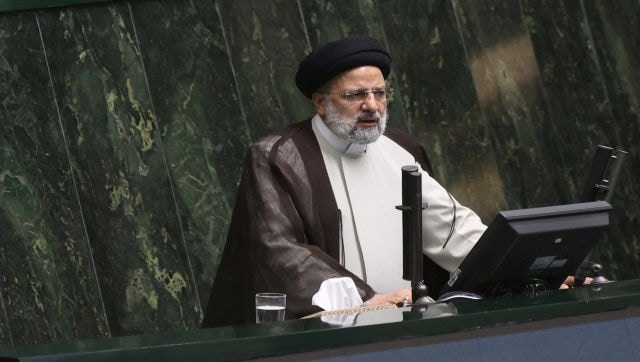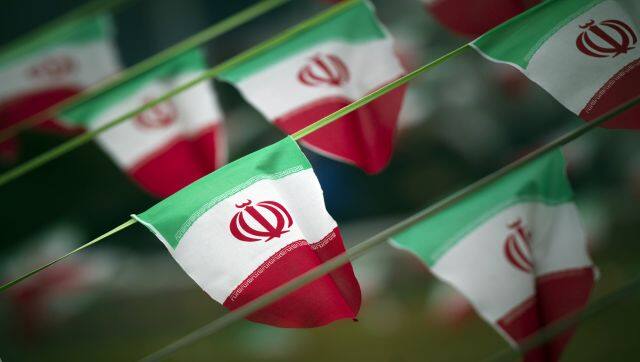Iran-Pakistan ties have taken a major hit in the last two days after Iranian missiles and drones targeted two alleged bases of Jaish al-Adl, an anti-Iran Baloch militant group in Pakistan. Islamabad retaliated on Thursday. These strikes, which killed at least 11 people, represent a significant escalation in the neighbours’ tense relations. Long-running, low-level insurgencies on either side of the border have frustrated both countries, and the apparent targets of the strikes — Iran’s on Tuesday and Pakistan’s response on Thursday — were insurgent groups seeking independence for ethnic Baloch areas in Iran, Pakistan, and Afghanistan. The question is why
Iran and Pakistan
would strike militants in each other’s borders rather than their own, given the potential of a larger conflict. Could the conflict escalate into a full-blown crisis? Why Iran attacked Pakistan Iran and Pakistan share a 900-kilometre, largely lawless, border where smugglers and militants roam freely. Both countries have suspected each other of supporting, or at least behaving leniently toward some of the groups operating on the other side of the border.
Jaish al-Adl
, the Sunni separatist group that Iran targeted on Tuesday, is believed to operate out of Pakistan, launching attacks on Iranian security forces. Iran says the group is linked to an Islamic State terrorist strike on a high-profile gathering in the city of Kerman that killed at least 91 people earlier this month. Tehran said it struck “strongholds” connected to the extremist group, but Pakistani authorities confirmed civilian casualties, including the deaths of two minors. [caption id=“attachment_13632422” align=“alignnone” width=“640”] Iran and Pakistan have suspected each other of supporting, or at least behaving leniently toward some of the groups operating on the other side of the border. File image/Reuters[/caption] Why did Pakistan retaliate? Pakistan said its strikes in Iran on Thursday were aimed at hideouts of the Balochistan Liberation Army and the
Balochistan Liberation Front
. It also wanted to send a message to Iran and other neighbours that it could fight back if provoked. Iranian state media reported the deaths of at least nine people, including three women and four children.
Also Read: Pakistan-Iran tensions: Where do India, the US, China stand?
The last time Pakistan retaliated against a neighbouring country was in 2019 when it downed two Indian warplanes and captured an Indian pilot on the other side of the Line of Control (LoC). It followed an Indian strike inside Pakistan against a terrorist training camp. Why did Iran strike inside Pakistan now? Iran and Pakistan have long had a volatile relationship, but these strikes are likely prompted by internal dynamics. [caption id=“attachment_13632432” align=“alignnone” width=“640”]
Iran and Pakistan have suspected each other of supporting, or at least behaving leniently toward some of the groups operating on the other side of the border. File image/Reuters[/caption] Why did Pakistan retaliate? Pakistan said its strikes in Iran on Thursday were aimed at hideouts of the Balochistan Liberation Army and the
Balochistan Liberation Front
. It also wanted to send a message to Iran and other neighbours that it could fight back if provoked. Iranian state media reported the deaths of at least nine people, including three women and four children.
Also Read: Pakistan-Iran tensions: Where do India, the US, China stand?
The last time Pakistan retaliated against a neighbouring country was in 2019 when it downed two Indian warplanes and captured an Indian pilot on the other side of the Line of Control (LoC). It followed an Indian strike inside Pakistan against a terrorist training camp. Why did Iran strike inside Pakistan now? Iran and Pakistan have long had a volatile relationship, but these strikes are likely prompted by internal dynamics. [caption id=“attachment_13632432” align=“alignnone” width=“640”] Iran is at the centre of rising tension in West Asia. Reuters[/caption] Tehran has been experiencing growing pressure for some kind of action after a deadly Islamic State group attack earlier this month, Israel’s war on Iran’s ally, Hamas, and wider unrest against its theocracy. Pakistan’s attack on Thursday also served a domestic purpose, according to analysts. “The government and military have been under immense pressure (since Tuesday),” said Abdullah Khan from the Pakistan Institute for Conflict and Security Studies think-tank in Islamabad. “The public perception of a strong army is not as it used to be, so it had to respond.” Could the situation escalate? Iran’s military on Thursday began a planned annual air defence drill stretching from its port of Chabahar near Pakistan in the east, all the way across the country to its border with Iraq in the west. The drill will include live fire from aircraft, drones and air defence systems.
Also Read: Iraq, Syria and now Pakistan: How Iran is at the centre of escalating tensions in West Asia
Fresh strikes by Iran and Pakistan cannot be ruled out, although this week’s attacks raise questions about the preparedness of their militaries, particularly their radar and air defence systems. For Pakistan, such systems are crucial given its constant, low-level tensions with its nuclear-armed rival, India. Its equipment has long been deployed along that frontier, rather than its border with Iran. Separately, Iran relies on radar and air defence systems in the case of potential strikes by its main enemy, the United States. What do the airstrikes mean for Iran and Pakistan? Launching these strikes allows Tehran to point to it directly taking military action without risking a wider confrontation with either Israel or the US, particularly as tensions also remain high over Iran’s rapidly advancing nuclear programme. However, the airstrikes could backfire on Pakistan because the Baloch Liberation Army said it would avenge the killings and wage war on the state. With inputs from AP
Iran is at the centre of rising tension in West Asia. Reuters[/caption] Tehran has been experiencing growing pressure for some kind of action after a deadly Islamic State group attack earlier this month, Israel’s war on Iran’s ally, Hamas, and wider unrest against its theocracy. Pakistan’s attack on Thursday also served a domestic purpose, according to analysts. “The government and military have been under immense pressure (since Tuesday),” said Abdullah Khan from the Pakistan Institute for Conflict and Security Studies think-tank in Islamabad. “The public perception of a strong army is not as it used to be, so it had to respond.” Could the situation escalate? Iran’s military on Thursday began a planned annual air defence drill stretching from its port of Chabahar near Pakistan in the east, all the way across the country to its border with Iraq in the west. The drill will include live fire from aircraft, drones and air defence systems.
Also Read: Iraq, Syria and now Pakistan: How Iran is at the centre of escalating tensions in West Asia
Fresh strikes by Iran and Pakistan cannot be ruled out, although this week’s attacks raise questions about the preparedness of their militaries, particularly their radar and air defence systems. For Pakistan, such systems are crucial given its constant, low-level tensions with its nuclear-armed rival, India. Its equipment has long been deployed along that frontier, rather than its border with Iran. Separately, Iran relies on radar and air defence systems in the case of potential strikes by its main enemy, the United States. What do the airstrikes mean for Iran and Pakistan? Launching these strikes allows Tehran to point to it directly taking military action without risking a wider confrontation with either Israel or the US, particularly as tensions also remain high over Iran’s rapidly advancing nuclear programme. However, the airstrikes could backfire on Pakistan because the Baloch Liberation Army said it would avenge the killings and wage war on the state. With inputs from AP
Iran vs Pakistan: Could the tensions escalate into a full-blown conflict?
FP Explainers
• January 19, 2024, 10:46:04 IST
This week’s airstrikes between Iran and Pakistan that killed at least 11 people mark a significant escalation in fraught relations between the neighbours. What happens next?
Advertisement
)
End of Article